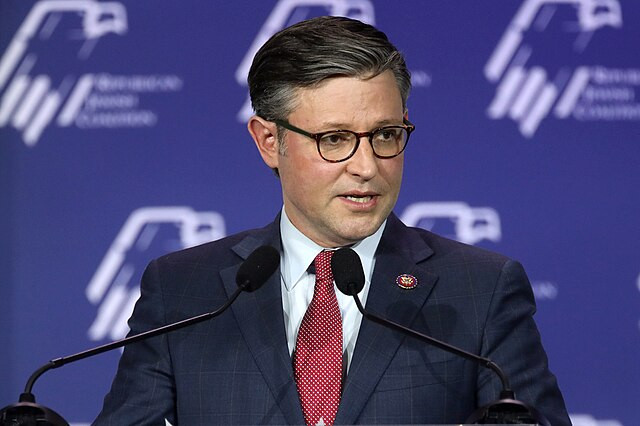House Speaker Mike Johnson is set to advance a crucial wartime aid package for Israel this week, in response to the recent Iranian attack, while also addressing the ongoing needs in Ukraine. Amidst heightened tensions and political challenges, Johnson is working to navigate the complex landscape of divided support within his party and the urgent demands of international security commitments.
Johnson, a Republican from Louisiana, faces intense scrutiny from both sides of the aisle as he attempts to shepherd through Congress a $95 billion supplemental package intended for U.S. allies. This package is designed to provide humanitarian aid to civilians in Ukraine and Gaza and to replenish U.S. weapon stocks extended to Taiwan, alongside supporting Israel.
The urgency of this legislative action has been underscored by Iran's recent drone and missile strikes on Israel, which has added pressure on Johnson to act swiftly. In an interview with Fox News Channel's "Sunday Morning Futures," Johnson expressed a commitment to standing with Israel, highlighting the preparation of the aid package details. "We're looking at the options and all these supplemental issues," he stated, signaling a proactive stance in response to the crisis.
Simultaneously, Senate Majority Leader Chuck Schumer has echoed the sentiment of urgency following discussions with President Joe Biden and other top leaders from both the House and Senate. Schumer stressed the critical nature of the aid, "It's vital for the future of Ukraine, for Israel and the West."
The White House has also been vocal about the necessity of this package, with Biden urging for its passage as soon as possible to bolster national security and uphold commitments to international allies. This call to action was made during a comprehensive briefing with congressional leaders, aimed at consolidating support across party lines.
Amid these discussions, GOP Rep. Mike Turner of Ohio highlighted on NBC's "Meet the Press" that Johnson has committed to merging the aid for Israel, Ukraine, and allies in Asia into one package and pushing it through the House swiftly.
However, Johnson's leadership is being tested as internal party divisions emerge, particularly concerning the U.S. role in supporting Ukraine against Russia's invasion. Former President Donald Trump, a significant influencer within the GOP, has pushed for Ukraine aid to be structured as loans-a concept Johnson is considering, which aligns with Trump's "America First" policy framework.
These internal pressures are compounded by criticisms from figures like Rep. Marjorie Taylor Greene and other conservatives who challenge Johnson's approach to foreign aid and leadership style. This dissent within the party underscores the broader ideological battles playing out over U.S. foreign policy and national security strategy.
Meanwhile, senior GOP figures who support the aid package are growing increasingly frustrated with the delays in bringing it to the House floor. With the situation in both Israel and Ukraine growing more dire, the need for decisive action becomes more apparent. Rep. Michael McCaul, chair of the House Foreign Affairs Committee, drew parallels between the attacks on Israel and the ongoing conflict in Ukraine, emphasizing the urgency of U.S. support.
As Johnson returns to Washington, the global eyes are on the U.S. Congress to see how it navigates these complex international crises amidst domestic political challenges. The decisions made in the coming days could have significant implications for U.S. foreign policy and the geopolitical landscape of the Middle East and Eastern Europe.






